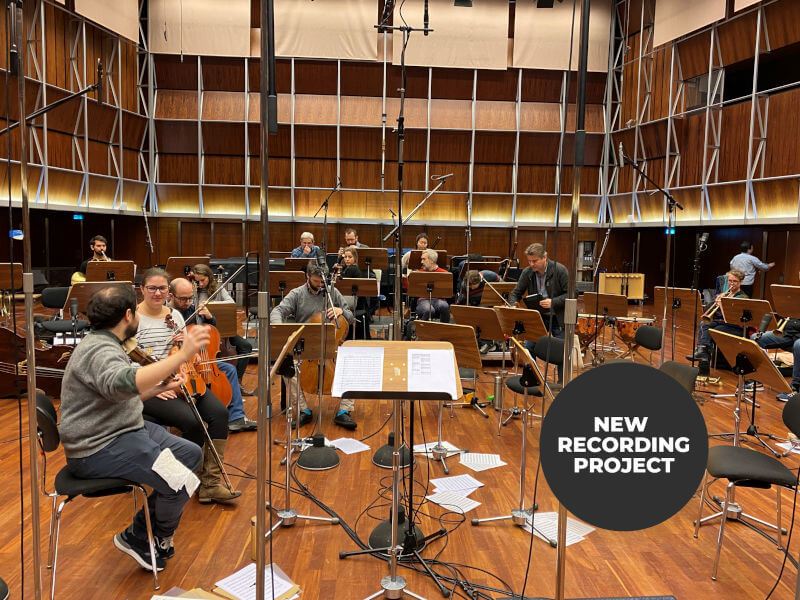New recording released with Alon Sariel
Vienna Mandolin Stories is Alon Sariel’s first full concerto album, inviting listeners on a journey through

Antonio, how long have you been with the Kölner Akademie and what brought you to it?
I’ve been with it for a few years, since 2017 / 2018, so more than five years, although it doesn’t feel that long. I met Michael and the orchestra in Italy, where they played a concert in Pisa. Although I was only there as a spectator, I had the opportunity to talk to Michael after the concert. And then I auditioned later and since then I’ve usually been involved in the projects. But I’ve been in Cologne for a long time: I studied in Cologne from 2012 and have actually been connected to Cologne ever since, and have one foot in Cologne and one in Italy, so to speak.
You just recorded symphonies by Friedrich Witt. Can you tell me something about that?
Those were actually very interesting recordings that we made in the last few days. Witt is a largely unknown composer who was born the same year as Beethoven. He composed some symphonies, of which we have now recorded the first three. It’s really very interesting: you can hear influences from Mozart, Haydn, but equally, some passages already sound like Schubert. It was very exciting to bring out all these relationships and influences in the recordings. The Cologne Academy has already made a recording with Witt, but that was before my time, so I played his music for the first time. And I don’t think I was the only one in the orchestra (laughs).
There is a nice anecdote about Witt, that one of his symphonies was considered an early work by Beethoven for a long time. Were you also able to find similarities in the recorded works?
There are passages that can also sound like Beethoven, if you want to interpret it that way, but I think that both have very clearly their own style. In Witt’s case, for example, it is striking that one finds a great many cello solos in his symphonies, since he himself was also a cellist. That is of course something that cannot be found in Beethoven, and where Witt’s own style becomes quite clear.
The Kölner Akademie plays in a historically informed manner. Can you explain to me what that means exactly for this period? Where are the biggest differences compared to modern instruments?
The biggest difference for us string players is definitely playing on gut strings. One must not forget that these were the norm until the First World War. They change the sound enormously and give it a completely different color. Of course, when we play, we have to pay completely different attention to how we bow exactly. If you were to compare this with cars, then modern strings would be like a modern car that almost drives itself. The gut strings are then more like an old-timer, where you have to know exactly how to treat it. (laughs) We are lucky that there are quite a few sources on playing technique at this time. In this respect, one is always faced with a research task with every new project. I think that – even if you play in a historically informed way – you have to be very careful about presenting something as definitely valid. Because we can’t know that. We can only try to get as close as possible. I think it’s so important, especially with unknown music like the works of Witt, that one deals with these questions in order to help this unknown music to be recognized again.
OTHER RECENT NEWS
Vienna Mandolin Stories is Alon Sariel’s first full concerto album, inviting listeners on a journey through
Which instrument do you play at the Kölner Akademie and when did you start playing?At
Which instrument do you play at the Kölner Akademie and when did you start playing?I